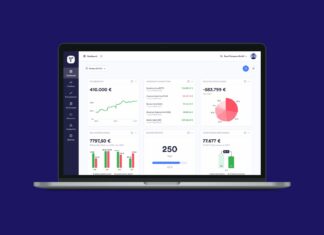2020 was a challenging year for all media companies. The Corona pandemic is forcing many publishers to rethink, which is on the other hand accelerating a long-overdue need for change. For Jakob Wais and Romanus Otte, who have been responsible for Business Insider Germany since May 2019, another special feature was added last year. With the pandemic, Axel Springer announced the integration of the Gründerszene into their young company.
In this Interview, the editors-in-chief and managing directors talk about what it’s like to bring two media brands together at this special time, what they’re doing to boost the mood in their newsrooms, and how they plan to use paid content to expand their business model.
Medieninsider: 2020 is a commercially challenging year for many media outlets and Business Insider Germany is at an expansion course. The question arises: is this year a blessing in disguise?
Jakob Wais: Those would not be the words we would choose right now. Looking at the end of the year, we are very pleased with the performance of our team. However, this has little to do with a blessing, but rather with the fact that we as a team, but also as management, have made the right decisions to get through this Corona period well — both in terms of the health of the employees and the health of the company.
Romanus Otte: I also struggle with the term “blessing”. This year, too, was hard work in an unfortunate time for us. For us, it wasn’t just about building and expanding Business Insider Germany. Since April, Gründerszene has also been introduced, which in turn built up a paid content model. In 2020, this meant several large components at the same time. There were also some confusions and distortions, but good came out of them.
We will get into the merger in more detail in a moment. 2020 was a year in which digital advertising revenues also collapsed, short-time work was more the rule than the exception in the industry for months. Particularly in the Millennial media segment, offerings were closed or integrated into the parent brand’s offerings. So wasn’t there some luck involved after all, because Business Insider Germany’s expansion was a done deal before the spread of the pandemic?
Romanus Otte: Because we are merging two companies, I have to give two answers: As a part of the global brand cosmos of Insider, Business Insider Germany is a strategically important brand for Axel Springer. We benefit from that. Business Insider Germany, however, is not a cost bearer. We have a great ambition to make our own money. Of course, the cyclical effects have not passed us by. But we end the year stable, also because we have a good deal with our sales-partner Media Impact and a high percentage of programmatic advertising. It didn’t go so bad, despite Covid. It is different for the Gründerszene, where there is a completely different business model, which is geared towards direct advertising, job exchange and events. It doesn’t take an expert’s knowledge to be able to imagine that things didn’t got so well this year. This confirms that it was a good decision to bring Business Insider and Gründerszene together. We now have a line-up where both brands can learn and benefit from each other. We will grow together.
“The resolution comes faster than we initially planned.”
What usually grows along with it, is the cost side. It is hard to imagine that this can be refinanced with programmatic advertising.
Romanus Otte: In fact, it is quite inconceivable. Going for maximum reach in order to achieve maximum revenues through programmatic advertising is also not in line with our journalistic understanding. My mantra for the past 15 years has been: A sustainable business model needs multiple revenue pillars. This includes advertising, which in our case includes a job market and an event business, which Gründerszene is very good at. But this also includes a paid content model. We also need to broaden the business model for Business Insider Germany.
Jakob Wais: And that’s what we will do. In the first half of 2021, we will also introduce a paid content model for Business Insider Germany. The decision comes faster than initially planned. The reason is that we already gained good experience with Gründerszene Plus and consider it useful to bring such a product to the market early on and develop it further together with the user. It is also suitable because Gründerszene already fulfils the technical requirement. The business is also positive for us.
What does that mean in numbers?
Jakob Wais: This means that today Gründerszene has more than 500 paying subscribers. Compared to other offers, especially at Axel Springer, this is not much. However, if we consider that we have not yet advertised for this offer, potential becomes apparent. Of course, we want to achieve significantly higher values with Gründerszene and Business Insider Germany.
Romanus Otte: Here, by the way, the enrichment from the merger becomes clear. Starting a paid model at Gründerszene this year was not our idea. We were even more reserved because of the mergers and Corona. The team of Gründerszene, who had already designed and set up everything, convinced us.
What should a paid content model from Business Insider Germany look like in terms of content?
Jakob Wais: We don’t see ourselves as paid or free as a primary news source. Many others are already doing it and better than we could. Paid content is intended to underpin our brand promise. We pick out industries in which we are well-connected and have special competencies. Then we will try to serve interest at such a level that people will want to pay for it. Our coverage of the automotive industry will be an area in which we will dare to put up a price tag very early on. The same applies to job and career issues. One issue that is gaining in relevance, not least because of Corona, is retail. This is where we will sharpen our focus. Before that, it is necessary to find out what else is needed to form a complete product. That’s why we’re going to hire people, both in the editorial department and in the product area.
Where is there still learning potential or the need to catch up to make the product complete?
Jakob Wais: When we took over, Business Insider Germany was already a powerful and profitable website. But also just a website. We want to be better in terms of product versatility and of course our site can still be better and faster despite the initial revision. We have just entered the podcast market and are thinking intensively about newsletter formats. We know of them that they can be an important tool in the paid sector.
Will there be a Bundle from Business Insider and Gründerszene?
Romanus Otte: Simple and honest answer: We don’t know yet. These questions are all open on the table and will be answered in the coming months.
“Concerning the merger, it obviously would certainly be implausible to say that everything is going smoothly”
Integrating Gründerszene with Business Insider was probably the biggest change for you both. The project has been technically completed for a few weeks now. How does it look culturally?
Jakob Wais: The editorial team of Gründerszene was united in the merger with Business Insider Germany and continues to work as a separate team. I’d like to keep it that way. The colleagues under the leadership of editor-in-chief Alex Hofmann know very well how Gründerszene works, we don’t want to dilute that. Our task in the merger will now be to bring Gründerszene further to the fore. With this, we also clearly want to dispel the speculation that Gründerszenecould be mothballed or shut down. We’re not going to do that. The brand should grow and gain importance both in the Berlin start-up scene and beyond.
Romanus Otte: We can argue against this fear or prejudice only to a limited extent. Here we are going to convince Doubters with deeds. As far as merging; it would, of course, be implausible to say that everything is going smoothly. It is a new situation for everyone, which is made even more difficult by Covid. To start an anecdote, a colleague at the office told me the other day that she would see me in person for the first time. Before that, we only met on video calls. That’s not what you want. And such integration or merging naturally also means that we will do some things differently in the future.
Like?
Romanus Otte: The merger with Business Insider Germany in a conjoint technical platform meant in the future that we will no longer work with our own development team, that Gründerszene initially had. In marketing, on the other hand, we now have our own team in addition to the partnership with Media Impact. Business Insider Germany has thus also supplemented the entrepreneur’s scene in some places. This is how we become our own small digital publishing house.
“Many are suffering from a reduction in contacts.”
How great is the challenge of turning two companies into one at such a young stage, i.e of creating a common corporate culture?
Jakob Wais: While Gründerszene already has its own corporate culture, Business Insider Germany is still in the process of finding its own. The team in Berlin is not that old, new employees are joining all the time. Right now, our options are also limited by Covid. We are looking forward to the moment when we can all come to the office together again. Concerning the joint organization of two brands or companies, a lot of communication is required. We also have the infamous phrase “we’ve always done it that way”. Here we are all working together to define a common path now.
Corona creates distance, making it difficult to work. In many editorial offices, this created a bad mood and frustration builds up. How do you deal with it?
Romanus Otte: We realized from the beginning that reducing physical contact is the best way to protect our employees. But we have also learned that it is not only about physical integrity, but also the mental health. Many suffer from the reduction of contacts. We have learned that there are employees who don’t want to work at home or can’t do it at all — because their apartment is too small, they live in a shared flat or maybe it doesn’t work in the family. That’s where stress comes in. We have therefore decided to keep the office open under strict rules.
Jakob Wais: Many of our employees live alone. In addition to those who are parents, it is currently particularly demanding for this group, keyword: social isolation. We try to take a lot of time for one-on-one meetings. We also had meetings together where it was just a matter of listening. We did special onboarding sessions with new employees. Exciting new formats have emerged from all this. For example, we had a joint virtual yoga or recently joint macramé class.
The Interview was first published in German on December 22, 2020.





